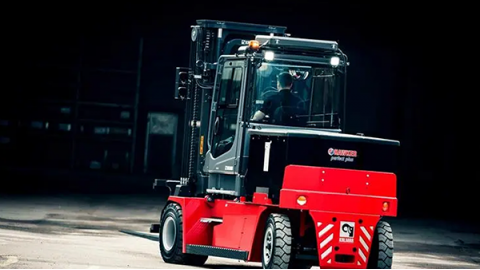Top 10 Lubrication Companies
Lubrication is a key factor for the efficient operation of industrial machinery and transport systems. It reduces friction, wear, and energy loss. Lubricants include oils, greases, dry films, and synthetic fluids. Each is designed for specific applications and operating conditions. The global lubricant market is valued at over $150 billion. It is driven by demand from automotive, manufacturing, energy, and aerospace sectors. Technological progress focuses on improving performance, extending drain intervals, and enhancing environmental sustainability. This article explores the top ten lubrication companies based on innovation, global reach, and industry leadership.

Industry Standards and Certification
Lubrication companies follow strict standards. API (American Petroleum Institute) certifies engine oils for quality and performance. ISO (International Organization for Standardization) standards like ISO 4406 define fluid cleanliness. ISO VG (Viscosity Grade) classifies oil viscosity. OEM (Original Equipment Manufacturer) approvals from companies like Caterpillar or Mercedes-Benz show that products meet specific machinery requirements. Environmental certifications like EU Ecolabel or Blue Angel highlight eco-friendly lubricants. Companies invest in research and development to meet these standards. They often work with industry groups like STLE (Society of Tribologists and Lubrication Engineers) for testing and validation.
Leading Global Players
ExxonMobil leads with its Mobil brand. It offers a wide range of products from industrial oils to synthetic lubricants. It focuses on high-temperature and high-pressure applications. Shell has its Helix and Rotella lines. It emphasizes fuel economy and emission reduction. BP's Castrol product line is strong in automotive and motorcycle sectors. It uses advanced additive technology. TotalEnergies offers high-performance fluids through its lubrication division for energy and marine sectors. Chevron stands out in heavy industrial lubricants with its Tex brand and proprietary additive packages. These companies operate through global distribution networks and local blending facilities.
Specialist and Niche Companies
Kluber Lubrication specializes in specialty lubricants for extreme conditions. These include high load or chemical exposure. It serves aerospace and food processing industries. Fuchs Lubricants offers custom solutions, including bio-based products. It focuses on sustainability. Petro-Canada, now partly owned by HollyFrontier, produces synthetic hydrocarbon fluids for cold climate applications. Idemitsu Kosan is strong in Asian markets. It provides compressor and high-performance engine oils. These niche players often partner with OEMs to develop application-specific formulas. Examples include lubricants for wind turbines or electric vehicle components.
Innovation and Research Focus
Companies invest in nano-lubricants. These use nanoparticles like molybdenum disulfide to reduce friction and increase machine life. Biodegradable lubricants come from vegetable oils or synthetic esters. They meet environmental regulations for use in sensitive areas like marine or agricultural environments. Smart lubrication systems integrate sensors. These monitor oil condition in real-time to predict maintenance needs and reduce downtime. Low-viscosity oils are developed for modern engines. They improve fuel efficiency while maintaining protection. Research extends to space application lubricants that operate in a vacuum and under extreme temperatures. Partnerships with universities and research institutions drive breakthroughs in new materials like ionic liquids.
Sustainability and Environmental Initiatives
Leading companies use Life Cycle Assessment (LCA) to minimize the carbon footprint of lubricants from production to disposal. Recycling and re-refining programs, like Shell's Re-Refined base oils, turn used oil into new products. This reduces waste. Water-based lubricants are developed for metalworking. They replace oil-based products and lower toxicity. Bio-based lubricants from rapeseed or sunflower offer renewable options with lower environmental impact. Companies comply with regulations like REACH (Registration, evaluation, Authorisation and Restriction of Chemicals) to ensure safe use. Initiatives like "zero discharge" targets drive innovation in closed-loop systems.
Market Trends and Future Outlook
The rise of electric vehicles (EVs) creates demand for specialized lubricants. These are for electric motors and battery thermal management. They need electrical insulation properties. Industry 4.0 integration connects lubricants with the Internet of Things (IoT) for predictive maintenance. This optimizes use. The Asia-Pacific region is growing due to industrialization and auto sales. This drives market expansion and localizes production. Synthetic lubricant adoption is increasing. They offer superior performance and longer life, despite a higher initial cost. Challenges include crude oil price swings and strict environmental rules. These shape product development. The future may bring more custom lubricants for autonomous machinery and renewable energy systems like solar farms.




